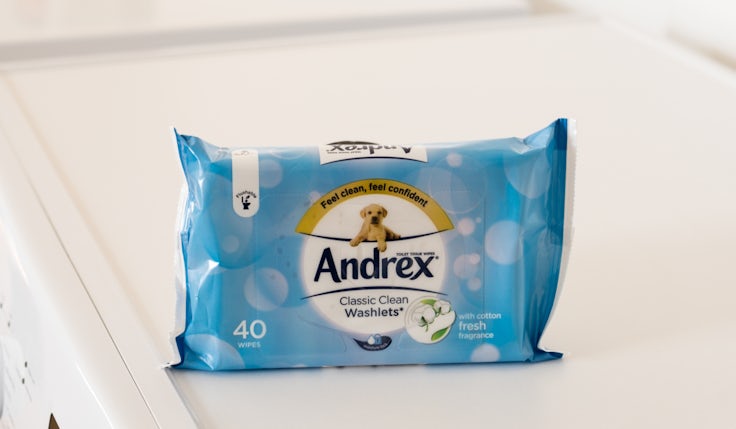How losing trust costs brands customers – and what marketers can do to prevent it
New research from Adobe shows more than half of customers stopped buying from a brand that broke their trust last year, with data indiscretions being the biggest cause. But there’s also an opportunity to build trust and strengthen customer relationships by using data to add value for customers.

The marketing world has been debating for some time whether loyalty is dead, but what’s certainly true is that consumers won’t easily forgive their trust in a brand being abused.
According to new research by Adobe, 71% of customers in the UK are likely to stop purchasing from a brand that breaks their trust, indicating a huge risk to businesses of losing significant proportions of their customer base if they fail to live up to their promises and customers’ expectations.
Adobe’s new ‘Future of Marketing’ research, released today (4 November) indicates poor data practices, excessive communications and failure to act on marketing opt-outs are among the biggest bugbears for customers, with brands that commit these indiscretions risking not just the loss of future purchases, but also drops in customer advocacy and loyalty scheme members.
Adobe’s vice-president of international marketing, Alvaro Del Pozo, explains: “Developing a relationship with customers that goes beyond transactions is a top priority for brands today, and, like all good long-term relationships, trust forms the foundation on which everything else is built.
“Consumers are increasingly aware that their data has huge value to brands and they expect it to be protected and used responsibly to deliver a better, more personalised experience for them. As our data shows, striking the right balance is essential, and brands that overstep or act without transparency can break that trust and lose a customer for good.”
Brands’ biggest mistakes
According to Adobe’s research, the main four ways customers demonstrate their trust in brands are by making more purchases (71% say they do this), recommending the brand to friends (61%), joining a loyalty programme (41%) and posting positive reviews or comments on social media (40%). All these actions, which stand to benefit not just a brand’s sales but also customer lifetime value and the cost of acquiring and retaining customers, could be put on hold or stopped for good if that trust disappears.
Indeed, more than half of customers (54%) say they already stopped purchasing from a brand last year owing to their trust being broken.
When asked for their reasons for leaving a brand, customers offer a clear warning to marketers: privacy and data protection are of paramount importance, and brands must not only comply with their legal requirements but also respect customers’ preferences and use data in ways that add value for them. Only then will brands earn customers’ trust, and the business benefits that go with it.
The balance of power has irreversibly shifted into the hands of the customer, and brands need to act accordingly.
Alvaro Del Pozo, Adobe
The top three reasons why customers say they ceased buying from a brand last year are all related to bad data marketing practices. They are: being ‘creepy’, for example by tracking or contacting a customer without clear permission (49% of people cited this); being annoying, such as by sending too many communications, or by lacking clarity over their privacy policies or data use (39%); and not listening, particularly to requests to stop sending marketing communications (39%).
The fact over half of customers say they took action to end their relationship with a brand last year shows these errors have tangible financial consequences, and that a relaxed approach to data governance and e-privacy is not a risk worth taking.
Just as reckless data use can damage trust, using data responsibly can help build it. When asked how companies can earn their trust, consumers rank ‘asking permission to use their data’, being ‘open and transparent’ and giving them ‘control over their data’ as their top three suggestions.
Del Pozo says: “Those marketers that focus on earning trust with customers are experiencing the benefits of doing so, with consumers more willing to purchase, recommend to a friend, join a loyalty programme or write a positive review. It’s clear that the expectations of today’s consumers are higher than ever, and so too, is their ability to find alternative brands to buy from. The balance of power has irreversibly shifted into the hands of the customer, and brands need to act accordingly.”
Younger customers less forgiving
The phenomenon of lost trust leading to loss of custom is already an urgent problem, but it seems likely to become an even bigger one as time goes on. Younger generations are the most likely to punish a breach of trust, with 74% of gen Z and 67% of millennials leaving at least one brand over the past 12 months, compared with the 54% overall average. As today’s younger customers get older and go on to represent a larger proportion of brands’ revenues, the risks to businesses will grow greater.
As Del Pozo points out, “Regaining any lost customers – irrespective of age – is a long journey for any brand, and it’s even harder to rebuild trust once it’s been broken. The message to marketers is clear: earn and maintain trust by being transparent and judicious with customer data and the reward is a lifetime of loyalty; get it wrong and you can lose a customer forever.”
The call to action for brands and marketers to use data responsibly could hardly be more obvious. Yet, there’s evidence they may underestimate the size of their challenge, with marketers rating their own ability to use data to create high-quality personalised experiences much better than their customers do. Less than a third of customers (32%) say the quality of digital experiences has improved over the past year, even though 93% of British marketers claim to be ‘good’ or ‘excellent’ at delivering personalised experiences at scale.
Marketers need to be transparent and open about the customer data they collect and deliver experiences in ways that enhance the relationship.
Alvaro Del Pozo, Adobe
There’s some hope, however, in the fact that gen Z and millennials are both more likely to say digital experiences are improving – and in the fact brands are looking ahead to the future, when third-party cookies will disappear and first-party data will become crucial for personalisation. The vast majority of British businesses (85%) now have a first-party data policy, according to Adobe’s research.
It’s clear, therefore, that high-quality, data-driven personalisation will be a key factor in separating successful brands from underperformers in the future. As Del Pozo summarises: “Trust and loyalty go hand-in-hand, and marketers need to be transparent and open about the customer data they collect and deliver experiences in ways that enhance the relationship.”
Marketers will have a tightrope to walk with younger customers in particular, given they are more likely to be impressed when experiences are personalised well, but also more likely to punish brands when they put a foot wrong.
As Del Pozo concludes: “If customers do not trust the brand they are buying from, they are more than willing to walk away and take their money with them. To earn that trust, businesses have a responsibility to build more direct and personal relationships by using customer data better, and that ultimately starts with marketing.”






